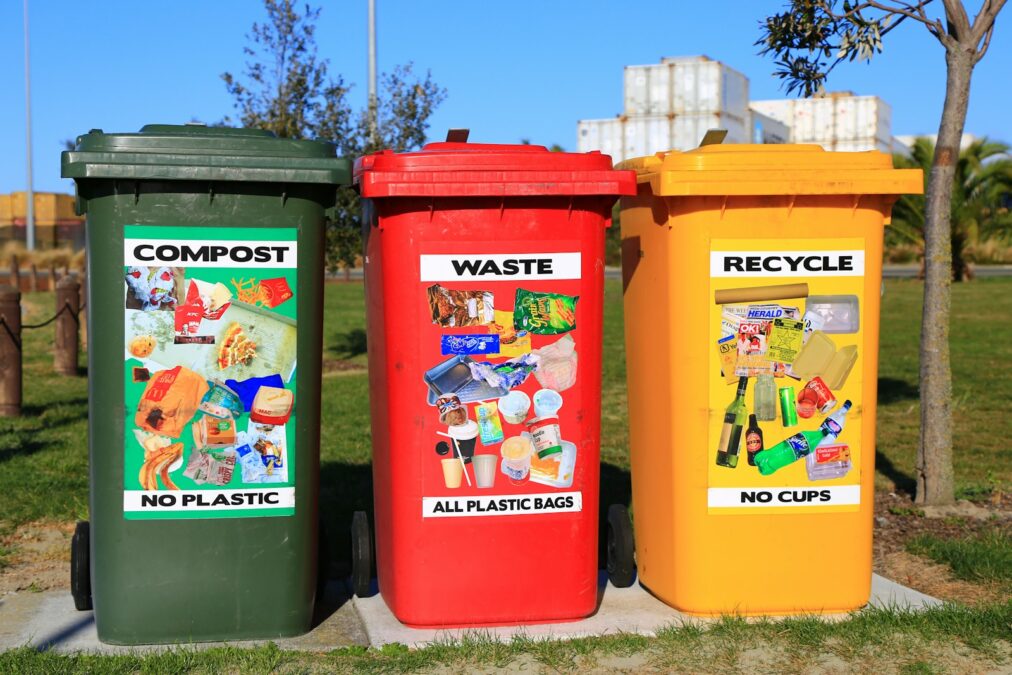Revolutionizing Urban Environments through Technology
Smart Waste Management systems are crucial for developing sustainable urban environments in progressive cities such as Dubai and Riyadh. By integrating Internet of Things (IoT) technology, these cities are setting benchmarks in efficiency and city management, fostering greener and cleaner living spaces without compromising on their rapid growth and development.
Optimizing Waste Collection with IoT
The foundation of Smart Waste Management in cities like Dubai and Riyadh lies in the use of IoT technology to optimize waste collection processes. IoT sensors can be embedded in waste containers to monitor their fill levels and send real-time data to central management systems. This data is then used to dynamically adjust waste collection routes and schedules, ensuring trucks only visit sites requiring service. This not only cuts down on unnecessary emissions and fuel consumption but also enhances the overall efficiency of the waste management system.
Impact on Urban Efficiency
Efficient waste management systems contribute significantly to the overall cleanliness of the city while reducing environmental pollution. In Riyadh, for example, the deployment of smart bins equipped with IoT technology has led to a noticeable improvement in street cleanliness and a reduction in overall environmental impact. By ensuring that waste collection services are as efficient as possible, these cities are taking important steps towards sustainability.
Enhancing Citizen Engagement through Smart Technologies
Smart waste management initiatives also include components that engage the community. In Dubai, apps allow citizens to report issues or overflow conditions directly to waste management services. This not only fosters a collaborative environment but also empowers residents to play an active role in their city’s cleanliness. Moreover, these apps provide educational content about recycling and waste reduction, further promoting sustainable habits among citizens.
Building Community Responsibility
By involving residents in the waste management process, cities can enhance public awareness and encourage a more environmentally conscious approach to urban living. This has been evident in UAE’s cities, where increased community involvement has improved recycling rates and reduced littering through educational campaigns and innovative public participation programs.
Integrating AI and Machine Learning for Better Waste Management
Beyond IoT, advanced technologies like Artificial Intelligence (AI) and machine learning are being integrated into the waste management systems of cities like Riyadh and Dubai. These technologies are used to analyze vast amounts of data collected by IoT devices to improve waste sorting and processing. AI algorithms predict waste generation patterns and optimize routes and operations accordingly.
Blockchain Innovations in Waste Management
Another transformative technology being integrated into Smart Waste Management is Blockchain. Particularly in the bustling cities of Dubai and Riyadh, Blockchain can ensure the traceability and transparency of waste management processes. This technology can securely log all transactions and operations related to waste handling, from collection to recycling processes. This not only helps in maintaining records free from tampering but also promotes accountability and transparency among service providers and municipal authorities.
Enhancing Transparency and Efficiency
The use of Blockchain technology facilitates a higher level of operational transparency and improves compliance with environmental regulations. By providing an immutable ledger for waste management records, it helps in creating a more trustworthy environment that encourages further investment in recycling and waste reduction initiatives. This boost in trust can be particularly advantageous in enhancing community engagement and support for sustainability initiatives within urban settings.
The Role of the Metaverse in Training and Simulation
Looking to the future, the Metaverse offers exciting new possibilities for training and simulation within the realm of waste management. Imagine virtual reality setups where city planners and waste management professionals can simulate and visualize new waste collection routes and processes in a fully immersive environment. This can drastically reduce the cost and time involved in testing and implementing new concepts, providing a safe and effective means to forecast the outcomes of real-world waste management scenarios.
Virtual Training and Environmental Education
Moreover, the Metaverse can be used as a powerful tool for education and public engagement in environmental issues. Through interactive simulations and educational programs designed within virtual environments, citizens can learn about sustainability practices and the importance of waste reduction in a much more engaging and impactful way. This could revolutionize the way environmental education is approached, making it more accessible and appealing to a broader audience.
Future Prospects in Waste Management Technology
The potential for future advancements in Smart Waste Management is immense. Predictive analytics can lead to even more personalized waste management services, potentially transforming how cities around the world handle their waste issues. As these technologies continue to evolve, the efficiency of city services will only increase, making urban areas cleaner and more sustainable for future generations.
#SmartWasteManagement, #IoT, #Sustainability, #UrbanPlanning, #Dubai, #Riyadh, #TechnologyInnovation, #AI, #MachineLearning









